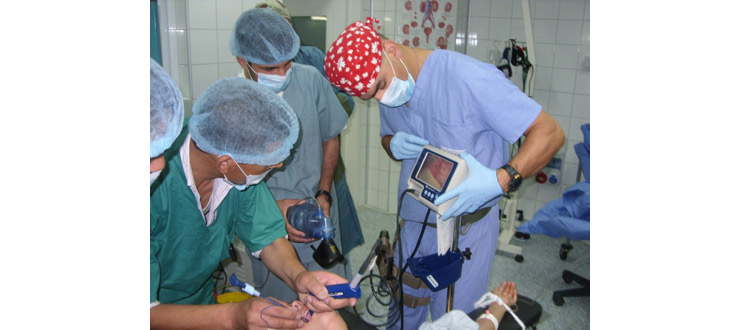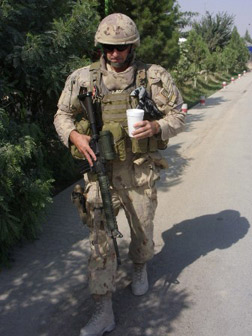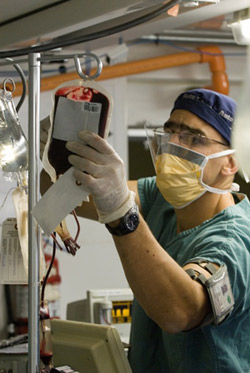
Dr. Robert Johnston (wearing the maple leaf surgical cap) had to wear a sidearm (strapped to his right leg) in the operating room as a protocol in Afghanistan.
An explosion in Kandahar was Dr. Robert Johnston’s first mass casualty incident in 2008.
“We got about 10 or 12 severely injured Afghan civilians ranging in age from about six months to quite elderly,” said Dr. Johnston. “All of a sudden hard decisions on many levels had to be made quickly, and effective teamwork was no longer just a catchphrase.”
Dr. Johnston is a consulting anesthesiologist at The Ottawa Hospital and a Specialist Medical Officer with Canada’s Department of National Defence. His experience in Kandahar is one of many dealing with limited supplies, space and personnel in emergency situations.
“The hospital itself was small and everything we did or didn’t do could have an impact on the coalition’s ability to carry out military operations,” he said.

As a member of the Canadian Armed Forces and the Department of National Defence, Dr. Robert Johnston contributes to international peace and security through operations around the world.
During seven overseas tours since 2003 to Afghanistan, Africa and the Middle East, Dr. Johnston has provided trauma care in support of Canadian and partner nations’ military operations.
He also works as an advisor and trainer for local military medical personnel in addition to participating within the Royal Canadian Air Force’s critical care transportation team. Dr. Johnston has done a number of transoceanic medical transports of injured soldiers.

Dr. Robert Johnston has seen trauma and trauma systems from a global perspective. His experiences have taught him how to improvise when resources are lacking in emergency situations.
Dr. Johnston’s experiences have had an impact on his perspective of our health-care system.
“It’s astonishing how many things I take for granted here in Canada: electricity, oxygen, buildings built to a code, vaccine programs, clean water and so on,” he said. “Especially in anesthesia, I think, we have the luxury of being able to agonize over things that have a relatively small impact on the health of Canadians.”

Support patient care and research at
The Ottawa Hospital


 To reset, hold the Ctrl key, then press 0.
To reset, hold the Ctrl key, then press 0.